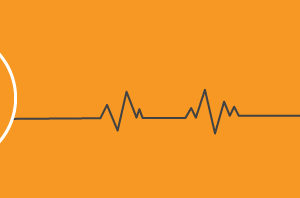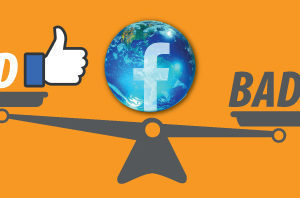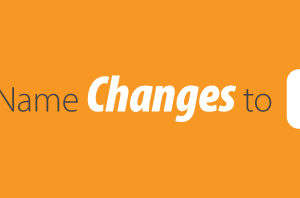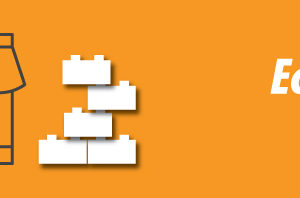
Is it Swaziland, Eswatini, or Ngwane? Changing a name of a country can be complicated.
Even a King Can’t Rename a Country Without Some Complications
Reported by The Wall Street Journal on May 27, 2019 by Alexandra Wexler.
MBABANE, Eswatini—King Mswati III, absolute ruler of the tiny southern African nation of Swaziland, last year announced on his 50th birthday that the country would henceforth be known as Eswatini.
The king said his surprise edict would be immediately enforced. Eswatini means “place of the Swazi” in the Swazi language, more or less the same as the Anglicized “Swaziland.”
A year later, the kingdom is finding that changing names can get complicated.
The country’s name remains Swaziland in its constitution and on its circulating currency. At the country’s brand new international airport, the seal on doors reads: King Mswati III International Airport, Operated by Swaziland Civil Aviation Authority. The banner on the government home page, www.gov.sz, boasts “The Government of The Kingdom of Eswatini,” while pages under the “About Us” tab still refer to the country as Swaziland.
An added layer of confusion: In the Swazi language, the country’s name is correctly written as eSwatini, but the legal order for the country’s name change issued last year used an uppercase “E” and a lowercase “s.” The two versions have left everyone from diplomats to tourists scrambling to avoid a linguistic faux pas. (Others have poked fun by misconstruing the use of the lowercase “e” as an attempt to rebrand the country as a tech hub.)
“By the time that the official communication was circulated, the media had seemingly embraced the improper version,” said Melusi Masuku, Eswatini’s ambassador to the United Nations. “To this day, we find ourselves having to correct this anomaly.”
The correct capitalization in English is Eswatini, with an uppercase “E,” said Percy Simelane, Eswatini’s government spokesman, because proper nouns in English begin with a capital letter.
The name change also prompted a shuffle at the U.N., where the country moved to sit with the Es, affecting the seating arrangement for all the countries between Eritrea and South Sudan.
Unlike many other African nations, Eswatini, which is about three-quarters the size of New Hampshire and with a population of about 1.2 million, didn’t change its name after gaining independence from the U.K. in 1968. That’s one reason that the king gave for the recent swap.
A second reason: Swaziland, a landlocked nation between South Africa and Mozambique, was being confused with Switzerland, the king said. “Whenever we go abroad, people refer to us as Switzerland,” he said during his birthday speech on April 19 last year.
“When I was [formerly with] the central bank, people would really think I said Switzerland, especially the French,” said Phil Mnisi, chief executive of the Eswatini Sugar Association—formerly the Swaziland Sugar Association—which oversees the production, processing and marketing of one of the country’s main exports.
Eswatini did in fact at one point earn itself the nickname “the Switzerland of Africa,” when the country became a safe haven for people in the region affected by conflicts, including the civil war in Mozambique and the fight against apartheid in South Africa.
The renaming from Swaziland to Eswatini, which is one of a handful of the world’s remaining absolute monarchies, has stoked longstanding tensions in the country between royalists and pro-democracy groups.
With an HIV infection rate of 27% among ages 15 to 49 and 40% of the population living under the international poverty line of $1.90 a day, according to the World Bank, many are unhappy that the government is spending any of its resources on a rebranding. The economy is expected to contract 0.4% this year, according to the International Monetary Fund.
“We feel as citizens of the country, we should have been consulted in one way or another,” said a 55-year-old attorney from Mbabane named Professor Dlamini. “It is putting the country through a lot of expenses, changing police uniform logos, and of course, to change documents. I’m not an accountant, but I believe at the end of the day a lot of money will be spent unnecessarily.”
Government spokesman Mr. Simelane said the costs are minimal, as old stock of stationery and identification documents will be used up before ones bearing the new name are introduced.
Thulani Maseko, a human rights lawyer, has challenged the king’s unilateral decision to change the country’s name in the high court, which itself still bears the Swaziland name on its signage. “You can’t just wake up and change those things without a legal process,” Mr. Maseko said. “There are laws that govern even changing your own name as a person.”
Others argue that if the country’s name is changing, it should be to Ngwane, after a popular king of the 18th century.
Alvit Dlamini, 71, a medical doctor who lives in Manzini, was present at discussions about a potential change to the country’s name as it prepared for independence in 1968. He was a member of the youth league of the Ngwane National Liberatory Congress, an opposition party.
“Because the name [Ngwane] was associated with our party, the king’s party opposed that the name be used,” Dr. Dlamini said. Ngwane is a nickname synonymous with Eswatini.
King Mswati hasn’t weighed in on the debate over the name change publicly, but he is one of few who hasn’t become tongue-twisted over the switch. “He is the only one I am aware of who does not slip back to the colonial name of the kingdom—Swaziland—in his speeches,” Mr. Simelane said. “The rest of us do.”
With the tension in Swaziland, should King Mswati change the country’s’ name to Eswatini or keep the name as Swaziland? Here are some resources to check out about rebranding:




